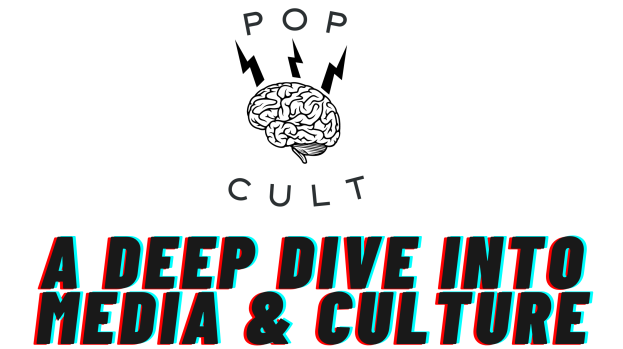Monica (Fantagraphics)
Written & Illustrated by Daniel Clowes
When I think of the great indie comics creators from my younger days, I typically think of three names: Charles Burns (Black Hole), Chris Ware (Jimmy Corrigan: The Smartest Kid on Earth), and Daniel Clowes (Ghost World). Each artist has a distinct style, and their personality comes through in all their work. The common theme between them all is a bleak look at humanity. Clowes’ work, in particular, focused on the alienation of Generation X, whose identities were tied to ironic nostalgia and difficulty being vulnerable with others. But time has passed, and Clowes is no longer a young man. As good as his early work is, he’s matured into something incredible, and Monica is a perfect example of this sophistication.
Through a series of interconnected narratives, we explore the life of a woman named Monica. We begin before she is even born with her mother’s tumultuous life, engaged to a young man fighting in Vietnam but who strays while he is away. When the man returns, the woman has moved on and is pregnant with someone else’s child. Each chapter in the book is a different genre of storytelling – war, romance, horror, psychological thriller, etc. as we watch Monica grow from a child to her 60s. She loses touch with her mother and goes on a sprawling odyssey tracing the woman’s steps, which leads to a religious cult that may or may not still be in operation.
My first thought about this graphic novel is that I’ve only read it once, and when you get to the final pages, it becomes evident that it will unfurl itself with multiple readings. Clowes play with narratives is masterful in that it feels like we’re reading through a comics anthology. The farther along you go, the more connections emerge, but there are some wild detours – the story of an eccentric young man coming home to find a cult has overtaken his hometown, for instance. That does pay off, but there’s still much to unpack in the psychedelic visuals Clowes presents in that sequence.
A tone that Clowes has really nailed is “quiet suffering.” So much of Monica’s life is lived alone, and the reader is present for these long, empty periods. The author refers to it as “an old man book… I wanted the publisher to list it as an ‘OA’ novel.” This underlines how the story comes from an older voice, someone looking back to make sense of the present. If I had been a younger person, I might not have felt so in awe of this book, but I’ve been reflecting and thinking about the human condition as we let COVID-19 ravage our societies.
Part of his inspiration began as a reflection on the writers/artists behind EC Comics, the home of titles like Tales from the Crypt that were the subject of censorship due to their often graphic content. Clowes found the intense grim tone of these comics to still hold up even today. The story emerged from thinking about Penny, Monica’s mother, first, but then Clowes shifted the narrative to her daughter. Placing the narrative’s point of view with someone outside Penny’s life takes on an investigative tone. By making the investigator Penny’s daughter, you will see a level of intimacy you wouldn’t find with a hired private eye. Clowes has stated that he considers periods of his life very episodic, with clear beginnings and ends, which led to the fragmented structure.
Clowes has become increasingly interested in how the socio-political movements of the 1960s and early 70s devolved into chaos. Rather than approach the subject from a theoretical perspective, he sees it from a very human point of view. A big part of what happens to Penny is going through so much trauma that she chooses to never be close to anyone ever again, including her own daughter. That clearly reflects how Monica remembers her childhood and already feels Penny drifting away. When she’s in her early twenties, Monica experiences the loss of her grandparents, the only stable parental figures in her life.
While staying at the family cabin on the lake, she uncovers a radio that her late grandfather appears to be speaking through, with one of his communications being, “I’m still here.” That line made me think about how the dead linger with us even in their passing and how the living who drift apart still exist for each other. Guy DeBord’s The Society of the Spectacle perfectly describes the crowd’s loneliness, wherein a person can be among many others yet still feel isolated. That mood permeates Clowes’ work here so that even when Monica isn’t isolating herself from others, it still feels like they are too far away to connect with.
Daniel Clowes has created a truly magnificent work of contemporary fiction with Monica. This is up there with the great American novels of more recent years, reflecting a maturation in craft since the comics creator started. He has even gone on record saying he wrote something that demands a return to the beginning when you reach the end. I expect people who have felt a change in themselves over the last four years to connect profoundly with this comic. Monica’s alienation from society feels authentic as we look out across masses of people living like machines, consuming without thought and only concerned about their immediate comfort.


One thought on “Comic Book Review – Monica”